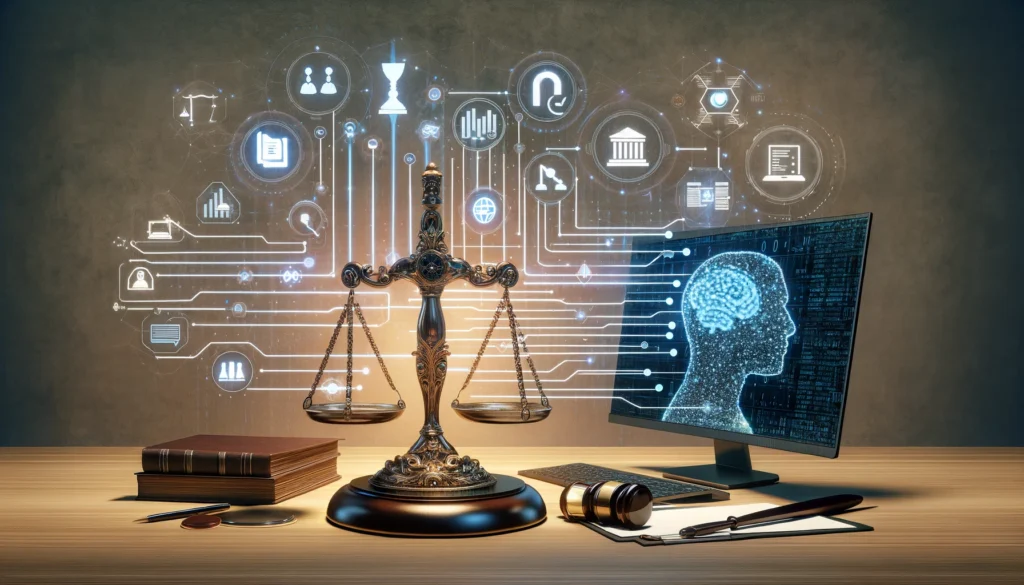
The NDA Essentials: Protecting Confidentiality in a Competitive World
In the cutthroat world of business, where ideas are currency and information is power, non-disclosure agreements (NDAs) are the unsung heroes of confidentiality. Whether you’re a startup guarding a groundbreaking invention, a corporation entering a strategic partnership, or an individual protecting a creative concept, NDAs are the legal armor that shields your secrets.
But drafting an effective NDA is no simple task. It’s a balancing act: ensuring robust protection for sensitive information while maintaining clarity and avoiding overly restrictive terms that could hinder collaboration. Tailor-made agreements are essential, as a one-size-fits-all approach rarely suffices. Overly broad language can be unenforceable, while overly narrow language leaves crucial information vulnerable.
In this delicate dance of legal drafting, AI tools like ChatGPT are emerging as invaluable partners. Let’s see how this AI drafting coach can elevate your NDA game…
ChatGPT: Your NDA Drafting Coach
Imagine having a seasoned legal expert whispering in your ear, guiding you through the intricacies of NDA drafting. That’s the experience ChatGPT can approximate, serving as a virtual coach that helps you craft airtight agreements without getting bogged down in the details.
ChatGPT’s versatile capabilities make it an ideal companion for this task:
- Template Generation: Need a starting point? Simply ask ChatGPT to generate an NDA template tailored to your specific situation (e.g., unilateral NDA for a new employee, mutual NDA for a potential partnership). This provides a solid foundation upon which you can build.
- Clause Suggestions: Unsure which clauses are essential for your NDA? Describe your needs, and ChatGPT can suggest appropriate provisions to address specific concerns, such as intellectual property protection, non-compete restrictions, or data security.
- Legal Definitions: Encountered an unfamiliar legal term? ChatGPT can provide clear definitions and explanations, ensuring that you understand the implications of each clause.
- Ambiguity Detection: Worried about loopholes or unclear language? Ask ChatGPT to review your draft NDA and identify potential areas for improvement. It can flag ambiguous terms, missing provisions, or inconsistencies that could lead to future disputes.
Remember:ChatGPT is a tool, not a lawyer. While it can provide valuable guidance and suggestions, it's crucial to have an experienced attorney review your final NDA to ensure it's legally sound and tailored to your specific needs.
Now that we understand ChatGPT’s role, let’s explore how to effectively communicate with it using prompts that will unlock its full potential in NDA drafting.
Also read:
Prompting for NDA Success: From Templates to Tailored Agreements
Crafting the perfect prompt is like giving ChatGPT a well-defined treasure map. The more precise your instructions, the richer the output. Here’s how to refine your prompts and unlock ChatGPT’s full potential for NDA drafting:
Prompt Examples:
- Template Generation:
- Basic Prompt: “Draft a mutual non-disclosure agreement (NDA).”
- Advanced Prompt: “Draft a mutual NDA between a technology startup (Disclosing Party) and a potential investor (Receiving Party). The startup is seeking Series A funding and wants to protect its proprietary software algorithm. Include standard NDA clauses, such as confidentiality, non-use, and non-disclosure, as well as provisions specific to the software algorithm.”
- Clause Suggestions:
- Prompt: “Suggest specific clauses for this NDA [provide context of the NDA] that address the protection of trade secrets, including technical specifications and customer lists.”
- Purpose: Tailor the NDA to the specific type of confidential information being shared.
- Language Refinement:
- Prompt: “Rewrite this clause [insert clause] to be more concise and clear. Use language that is easily understandable by non-lawyers.”
- Purpose: Ensure the NDA is unambiguous and accessible to all parties involved.
- Risk Assessment:
- Prompt: “Analyze this draft NDA [insert NDA] and identify any potential loopholes or weaknesses that could compromise the protection of confidential information. Suggest revisions to strengthen the agreement.”
- Purpose: Proactively address potential vulnerabilities and mitigate legal risks.
Additional Prompts:
- Definition of Terms: “Define the term ‘confidential information’ as used in this NDA. Provide examples of what would be considered confidential in this context.”
- Exceptions: “Suggest appropriate exceptions to the confidentiality obligations in this NDA, such as disclosures required by law or to professional advisors.”
- Remedies: “Draft a clause outlining the remedies available to the Disclosing Party in case of a breach of this NDA.”
The Iterative Process:
Remember, prompting is an iterative process. Start with broad prompts to get an initial draft, then refine your instructions based on ChatGPT’s output. Ask clarifying questions, request additional details, and gradually guide the AI towards a tailored agreement that meets your specific needs.
While ChatGPT can streamline the drafting process, it’s important to remember that the human touch is essential for customization and negotiation. Let’s explore how…
Also read:
The Lawyer’s Touch: Customization and Negotiation
While ChatGPT can generate a solid NDA draft, the final product must be more than a template – it needs to be a strategic tool tailored to your client’s specific needs and the unique contours of the deal at hand. This is where the expertise of a human lawyer becomes indispensable.
ChatGPT can assist in several ways during this refinement process:
- Comparison: Provide ChatGPT with multiple NDA drafts from different sources and ask it to highlight the key differences in language, scope, and terms. This can help you identify areas for potential negotiation or where you might need to strengthen protections for your client.
- Brainstorming: Engage in a “conversation” with ChatGPT, bouncing ideas off of it and exploring different approaches to specific clauses or provisions.
- Scenario Planning: Ask ChatGPT to play the role of the opposing party and anticipate their concerns or objections to certain terms. This can help you prepare for negotiations and develop counterarguments.
Ultimately, however, it’s the lawyer’s experience and understanding of the client’s goals that will transform a generic template into a finely-tuned agreement. ChatGPT is a valuable tool, but it’s the lawyer’s strategic thinking and negotiation skills that will ensure the NDA truly protects their client’s interests.
Beyond the technical aspects of drafting and negotiation, the use of ChatGPT in NDA creation raises ethical questions, particularly around confidentiality. Let’s address these important considerations…
Also read:
Ethical Considerations and Confidentiality
While ChatGPT can be a powerful ally in NDA drafting, its use raises important ethical considerations that cannot be overlooked. NDAs, by their very nature, involve sensitive and confidential information that must be handled with the utmost care.
Here are key ethical considerations for legal professionals using ChatGPT in NDA drafting:
- Data Privacy: Never input any personally identifiable information (PII) or specific client details into ChatGPT. While the AI model itself does not retain this data, there’s always a risk of accidental disclosure or data breaches. Consider anonymizing information or using general descriptions when using ChatGPT for drafting or analysis.
- Attorney-Client Privilege: Be mindful of the potential impact of using AI on attorney-client privilege. While ChatGPT can be a useful tool for brainstorming or generating initial drafts, the final version of the NDA and any related communications should remain confidential between you and your client.
- Scope of Use: ChatGPT is not a legal expert and should not be used as a substitute for legal advice. Its role is to assist in the drafting process, not to make legal decisions or interpret complex legal issues.
- Transparency: Be transparent with your clients about your use of AI tools. Explain the benefits and limitations of ChatGPT, and assure them that their confidential information is being handled responsibly.
By approaching AI with a strong ethical compass and prioritizing client confidentiality, legal professionals can leverage ChatGPT’s capabilities while maintaining the highest standards of professional responsibility.


